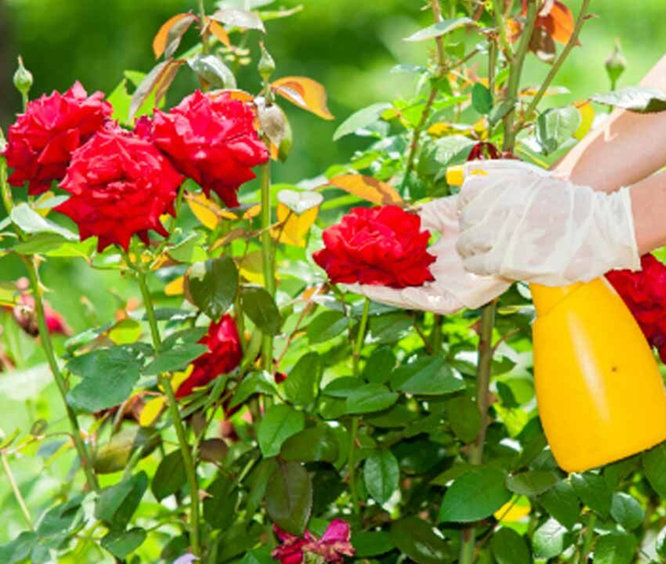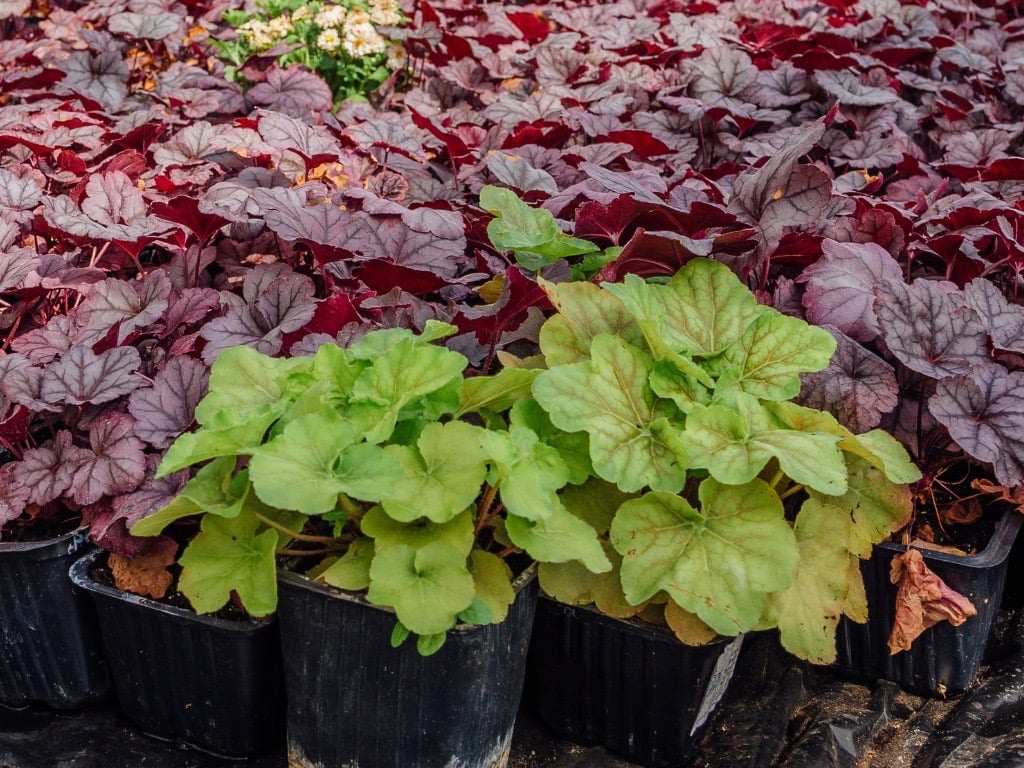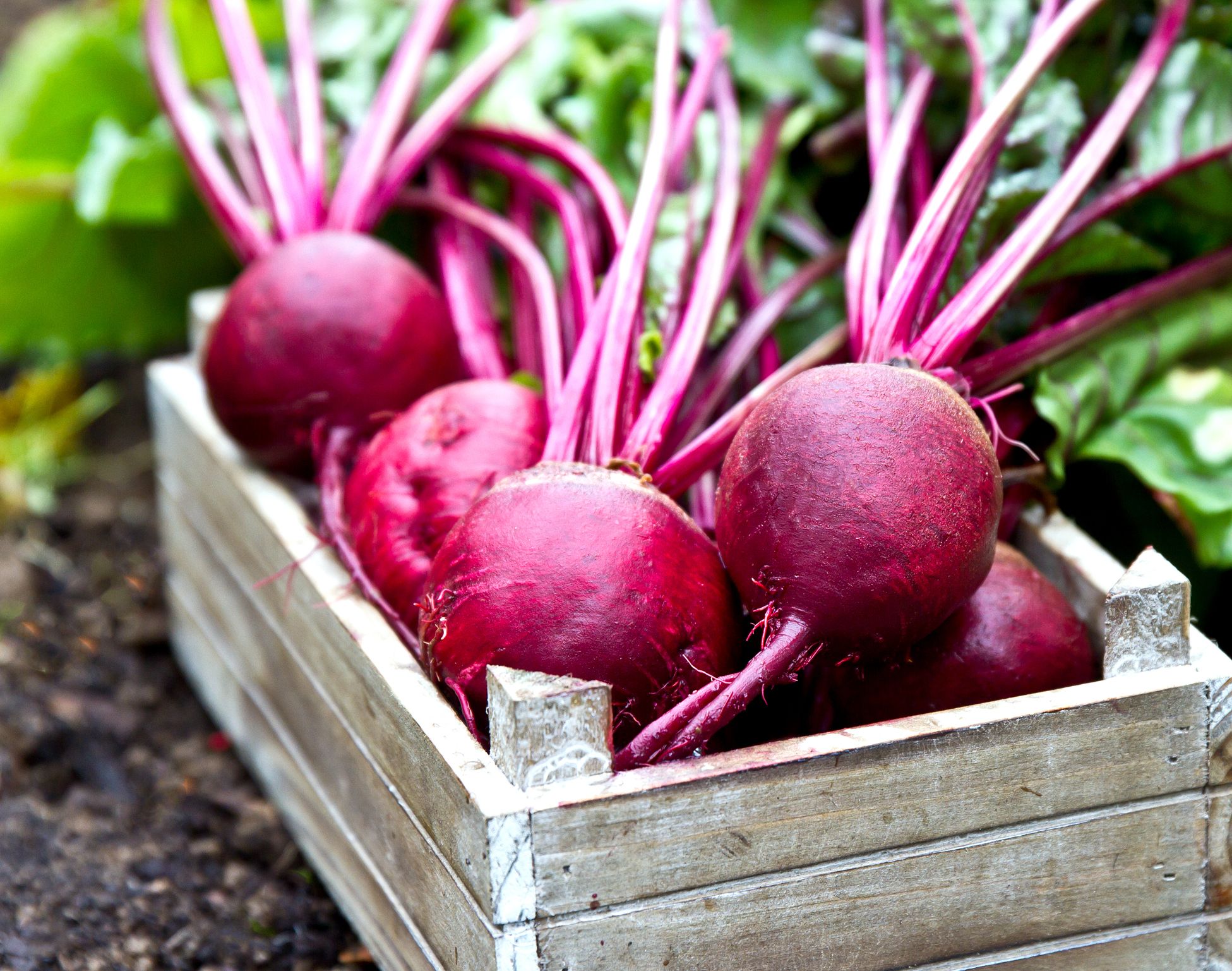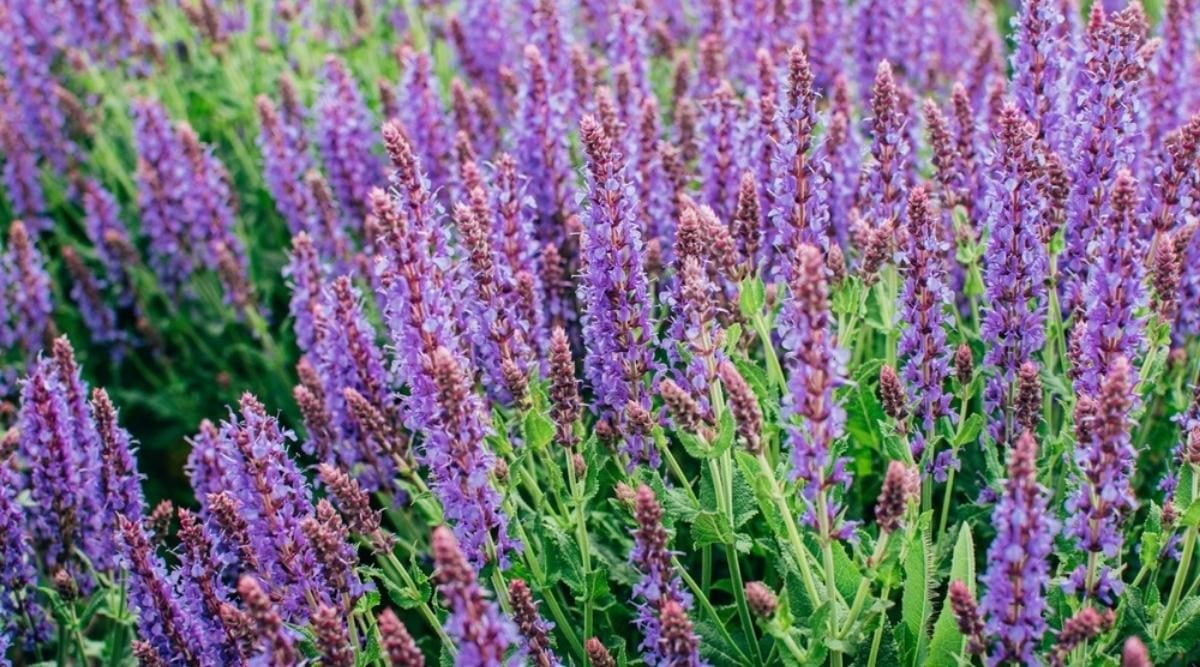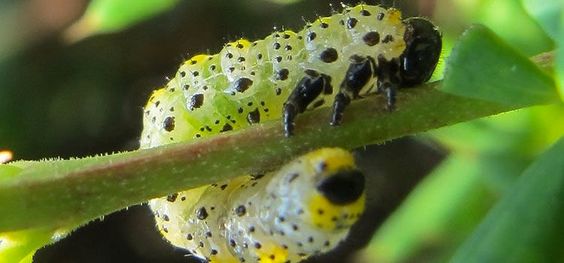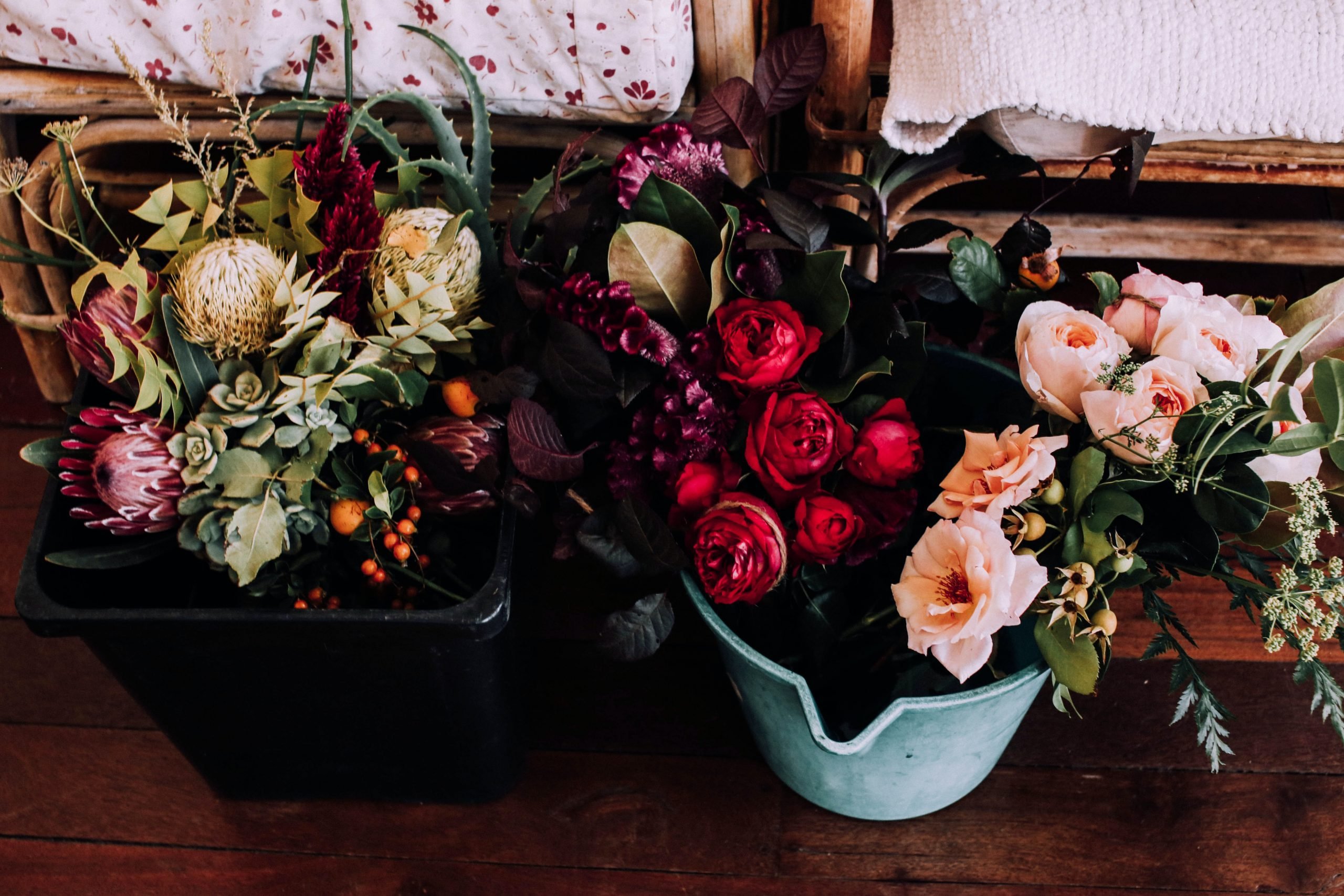10 Tips for Successfully Growing Pansies In Containers
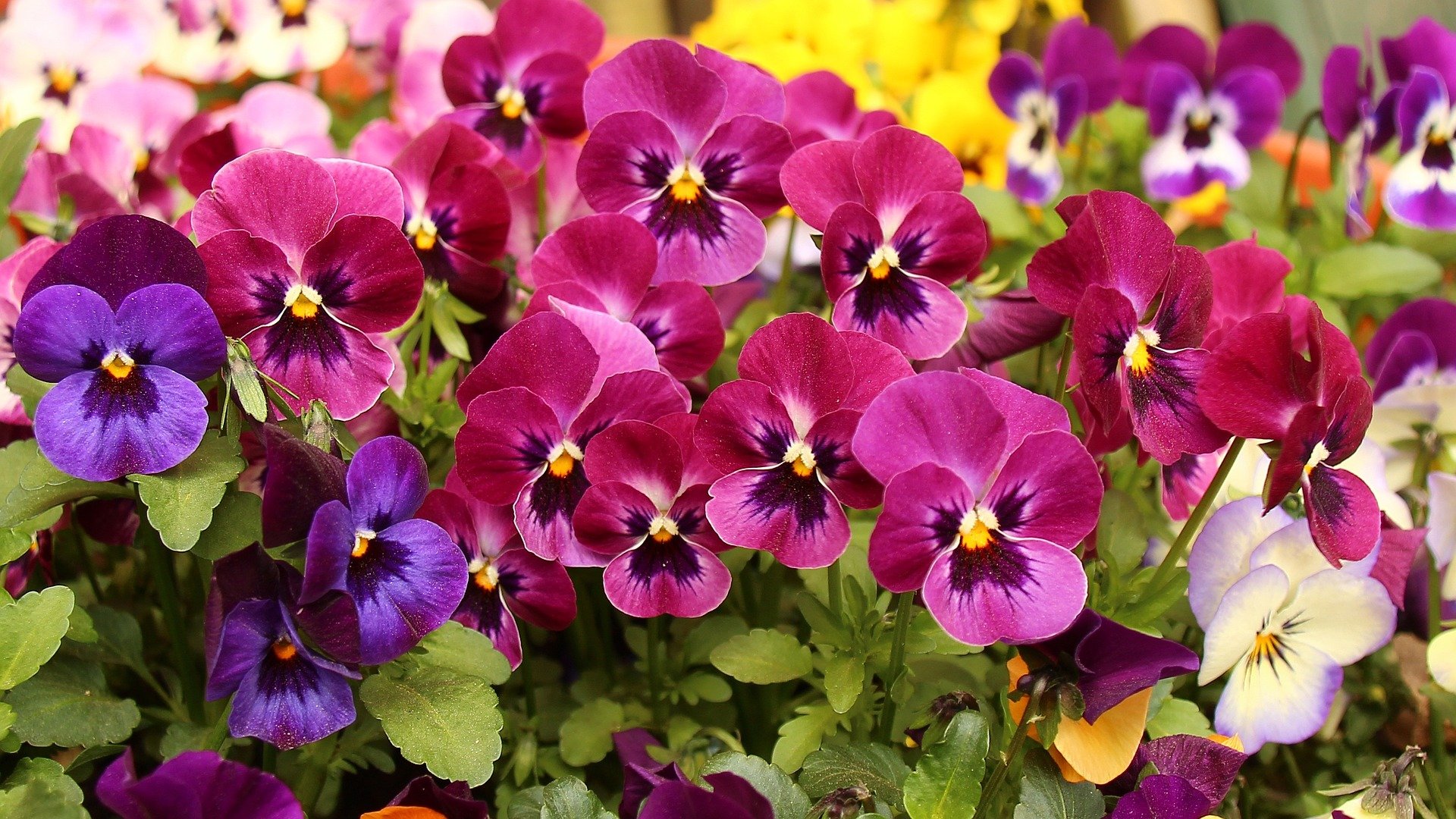
Table of Contents
The Pansy flower is one of the most popular plants to grow in the UK. What if you need to grow them in pots or containers? If you are going to invest your time and money into growing pansies, then you need to know if they can thrive in pots or containers just as well as in a garden.
You can easily get your pansies to grow and thrive in containers or pots with the right conditions and containers. If you want your pansies to grow to their fullest potential and pansy container ideas, then keep reading this article.
You will know how to select a container, which composts to buy, which pansies to plant, and much more important information.
About The Pansy Flower
Pansy or Viola × Wittrockiana is a garden flower. This hybrid plant comes from Viola tricolour, a wildflower native to western Asia and Europe. This plant originates from section Melanium of the genus Viola. The Pansy can also be used as a garnish on dishes, and the flower attracts many pollinators to your garden. Pollinators also use the Pansy flower as a nectar source when choices are few.
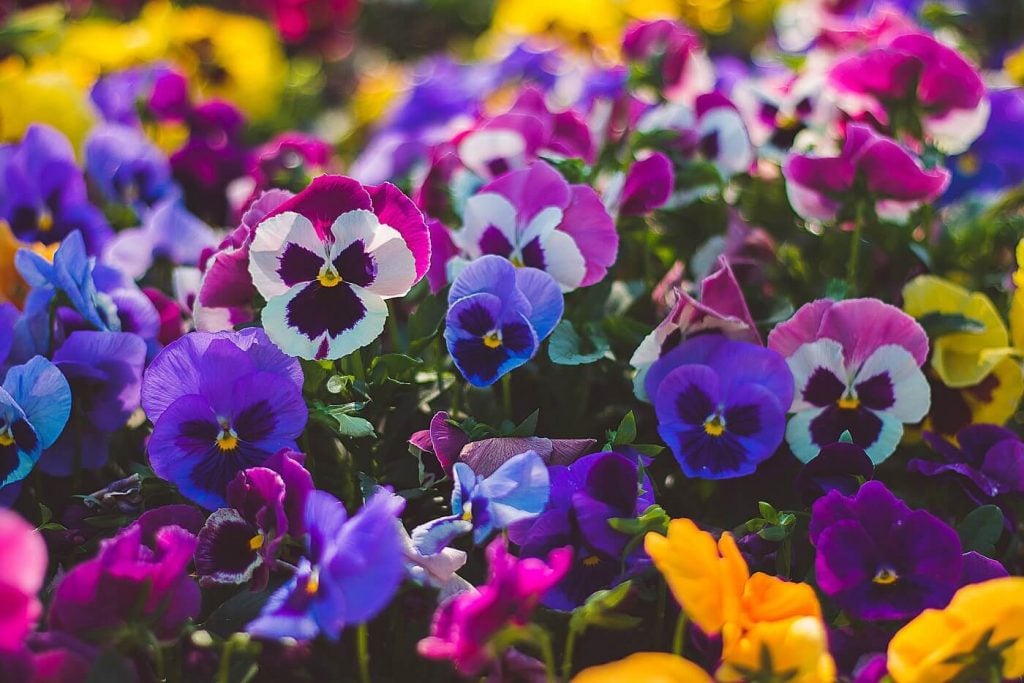
A Brief Overview of the Pansy Flower
- Scientific Name – Viola × Wittrockiana
- Plant Type – Annual
- Hardiness – H5
- Sunlight – Part sun/shade
- Height – 0.1 – 0.5 m
- Spread – 0.1 – 0.5 m
- Bloom Time – All year
Can Pansies Grow in Pots or Containers?
Yes, Pansies can be grown in pots, containers, hanging pots, flower beds, and ground. With the right environment, you can grow pansies all year round. Let’s see what all you need to grow these flowers and build your pansy container ideas list.
1. Choosing the Soil
For Pansies, the soil should be fertile, moist, and free draining. The soil can be clay, loam or sandy soil since Pansies are tolerant flowers. Any peat-free multi-purpose compost will work the best.
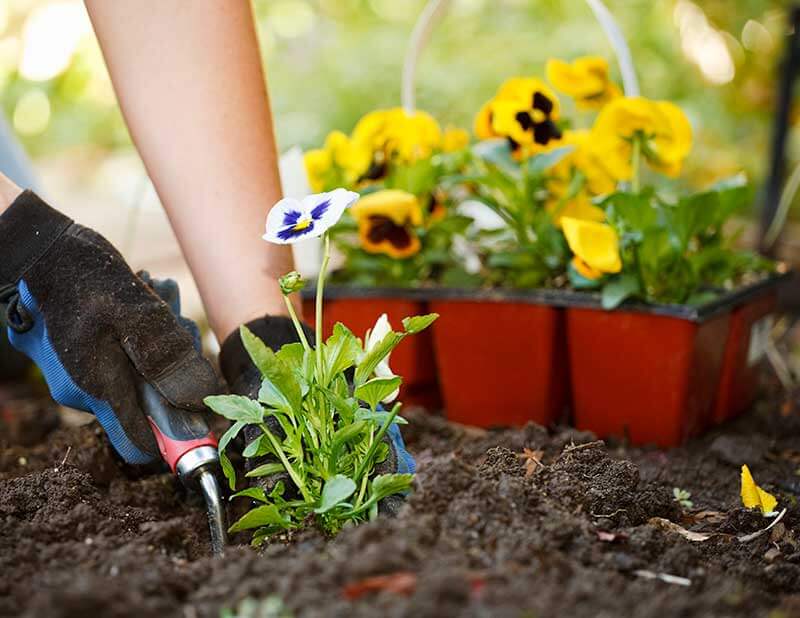
2. Which Pansies to Choose
There are many different varieties of Pansies to pick from. Vibrant colours and many size choices will be available to you. Some Pansies bloom in spring/summer, and some in autumn/winter. You will have to consider if you want the clumping or trailing plants if the container is not on the ground. You will be spoilt for choice.
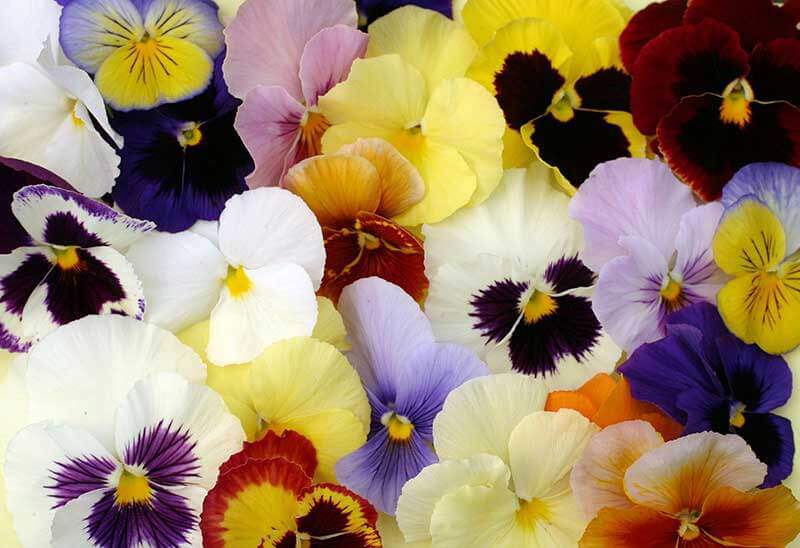
3. Picking the Container
Pansies can be planted into various-sized containers. It all depends on how much space you can allocate for Pansies and what you ultimately want in your garden. With shallow roots, you will not need a deep container, but it needs to retain moisture and drain excess water. So you will have your pick from the Pansy container ideas.
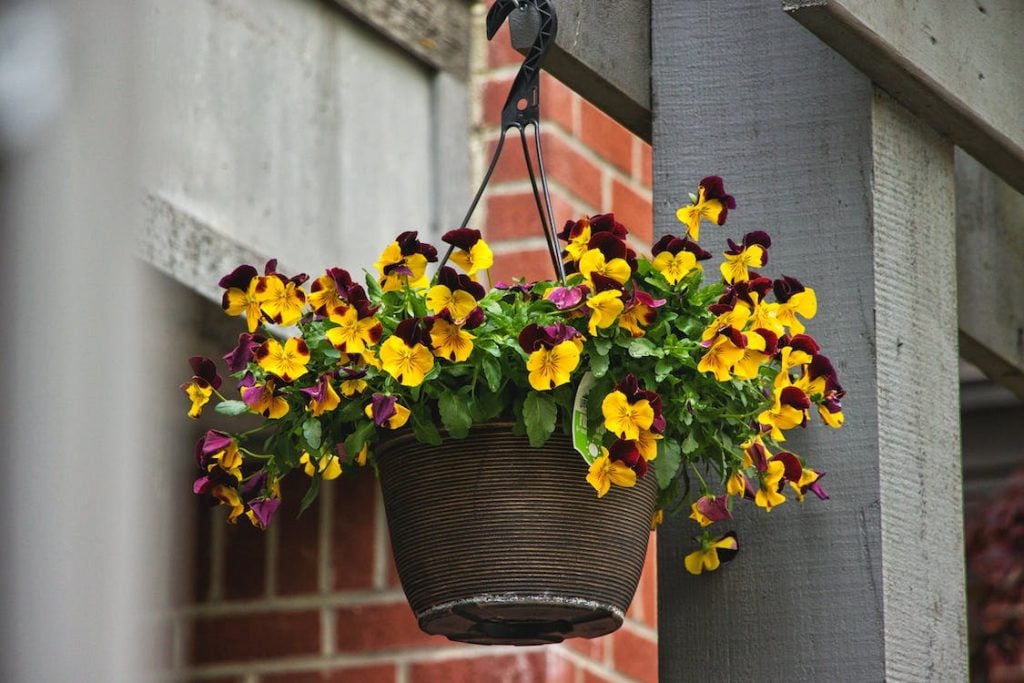
4. Plotting the Pansies
Once you have your container, you can grow Pansies from seeds or buy them from a plant nursery, but make sure to plant the flowers at the same level in the soil, just like the previous container. Put some soil in the container, the Pansies, and then more soil around the flower roots.
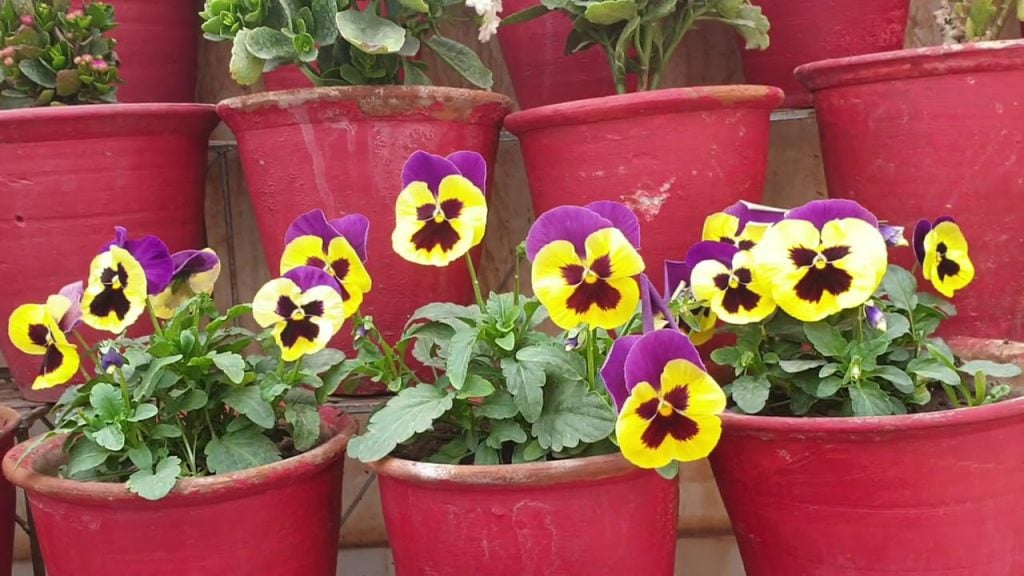
5. Number of Pansies in a Pot
Ideally, you should place Pansies about 15 cm apart, but they can handle a little bit of crowding. Pansies are clump-forming, so they are the perfect choice for mixed containers; Pansies can mingle with a wide range of different flowers. The size of the container and which other plants will be placed with the Pansies are important factors.
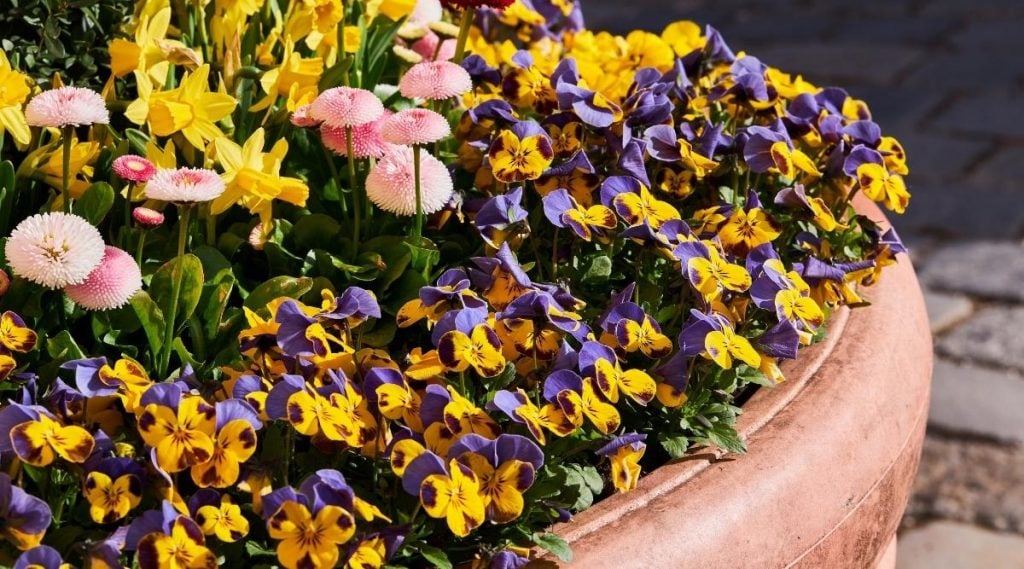
6. Other Plants with Pansies
As you read above, Pansies can be planted with other flowers and plants. Choose flowers that will bloom at the same time as the Pansies for a colourful display. Since Pansies attract pollinators, the other flowers also benefit from being planted in the same container.
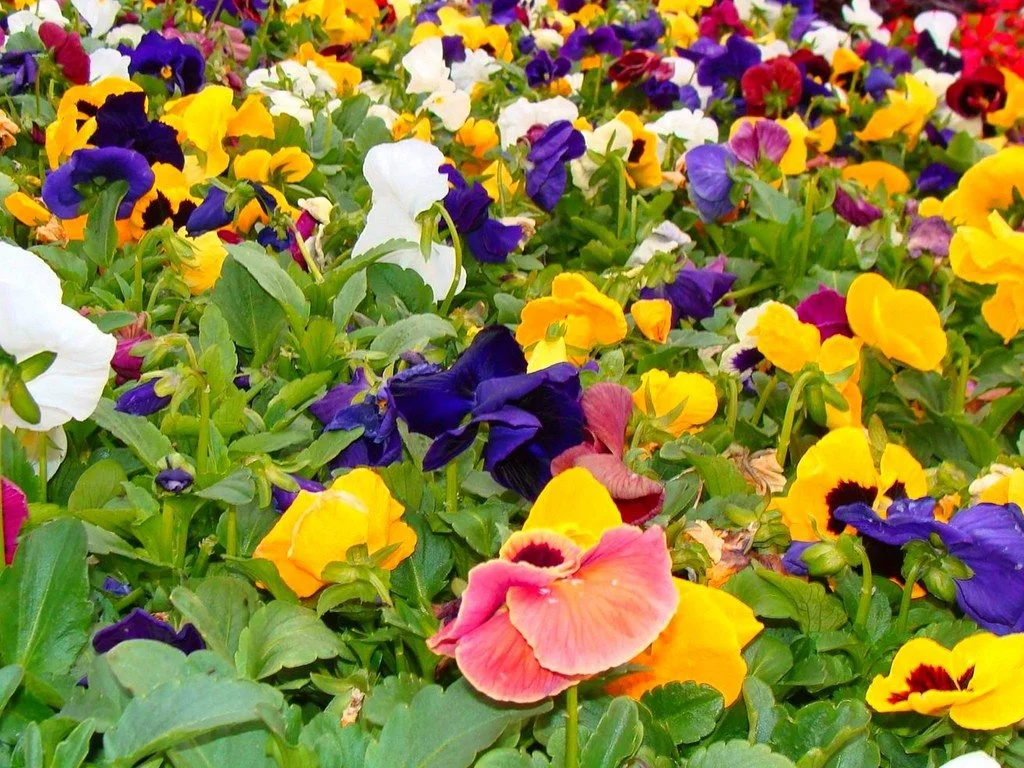
7. Watering the Pansies
Pansies should be watered during the dry spells since plants in containers dry out faster. The summer pansies need more watering than the winter ones. When you water the pansies, water the soil rather than the plant since dry flowers and foliage mean fewer chances of fungal cases.
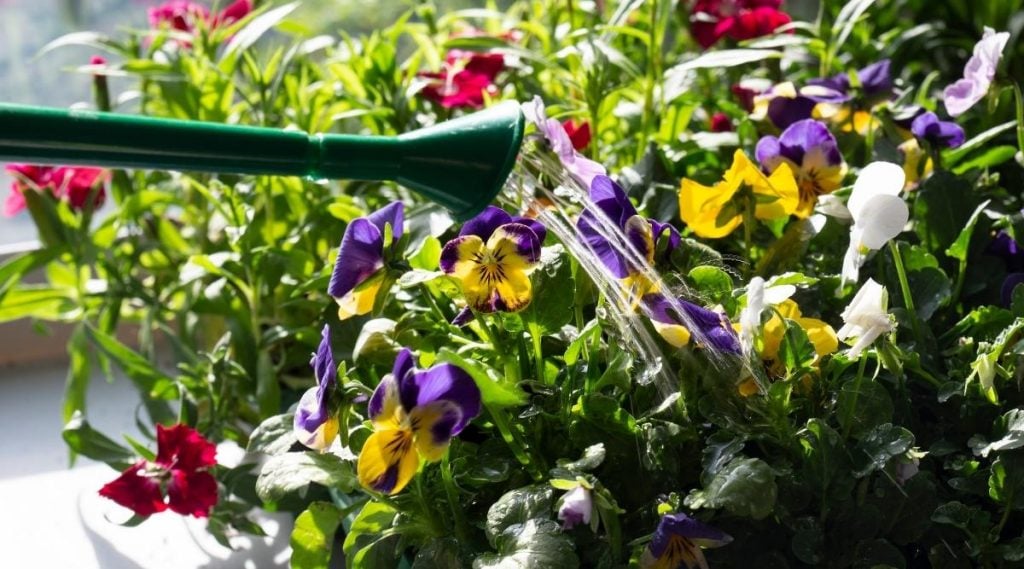
8. Humidity and Temperature for the Pansies
For Pansy seeds, temperatures need to be between 18-24°C for germination. When growing, Pansies can survive the summer temperatures and in winter, they can cope when it does not go below -10°C. Pansies can survive the harsh winters, but in the coldest locations, there may be frost and foliage damage.
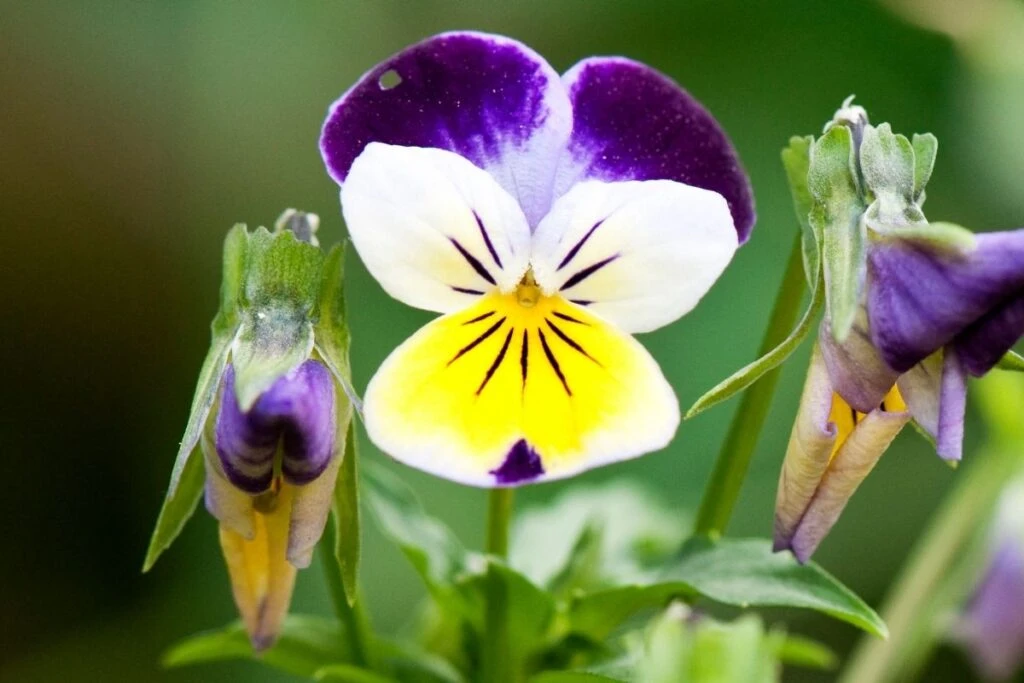
9. Fertilizer and Mulch
The growing season for Pansies is from spring to autumn; add fertilizer every few weeks with a liquid feed that is balanced and organic. Place mulch around the plant’s base with organic matter since it helps in plant growth, moisture retention, and good flowering. Make sure that you do not use excess nitrogen and non-organic fertilizer. With excess nitrogen, the plant focuses on leaf growth at the cost of flowers.
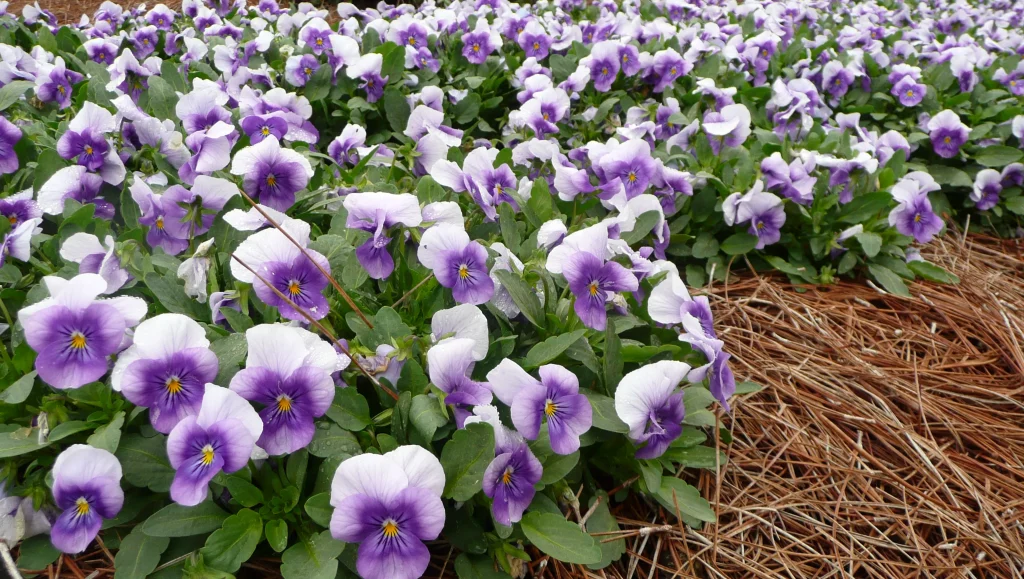
10. Planting of Pansies
You can easily grow pansies from seeds, especially if you are new to gardening. Pansies need to be sown from February to April for summer blooms, and for autumn and winter blooms, sow them from May to July. Fill a tray with compost and sow the seeds leaving them in a warm place, not in direct sunlight. Once germination happens, they can be under sunlight. Place the seedlings into pots after you can see two sets of leaves. After you have hardened them off, you can plant them in the garden.
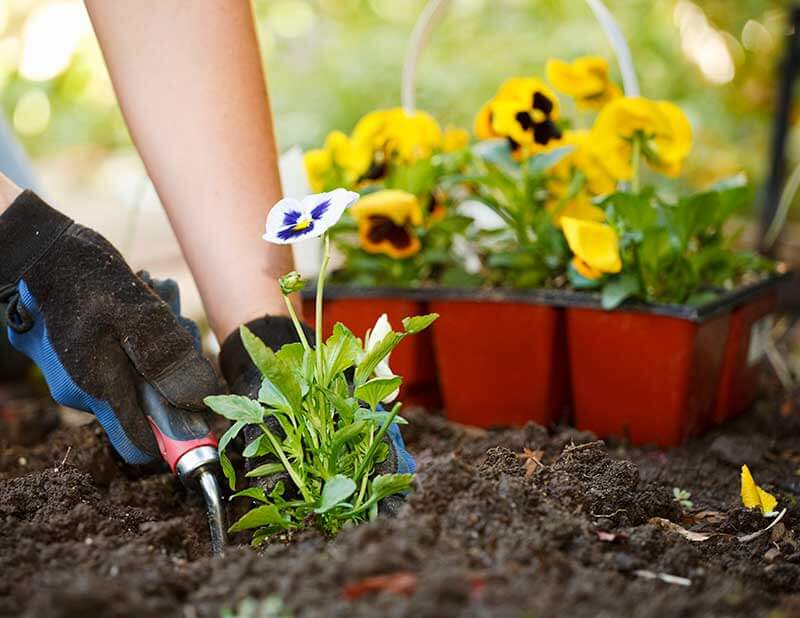
Common Problems to Watch Out For
If you see spots or blemishes on the leaves, then fungal disease is the answer. In rare cases, the stems will be affected by the fungal disease, or the plant’s centre can rot. The Pansy plant can also undergo leaf spots, powdery mildew, and downy mildew, which are indicators of fungal problems.
At any signs of disease, immediately remove the infected part. Do not grow any more Pansies flowers in that location next year since fungal spores may be in the growing medium or soil.
One more thing to look out for is slugs. To help control the slug problem, organic pest control will increase the predator population. You may also try out a physical barrier to keep out slugs. Aphids and other sap suckers should also be on your radar. Predators like lacewings or ladybirds will help in keeping away these pests.
Tools Need to Grow Pansies
Once you are ready to grow Pansies, you will need to create the perfect environment with the right tools.
Pansy Container Ideas
There are variously sized containers which you can choose from to grow your Pansies in.
- Flower Pots, Garden Pots, Hanging Buckets, Hanging Planters
- Flower Bowl with Stand
- Plastic Flower Pot 27x13cm
- Plastic Plant Pots – 8 Pack 16cm
- Warmplus 8 Pack Plant Pots Indoor
- Warmplus Self-Watering Plant Pots Indoor
Pansy Seeds
Since it is very easy to do, Pansy seeds should be on your shopping list.
- Simply Garden Pansy Swiss Giant Mixed Seeds
- 50 UK Pastel Giant Mixed Pansy Seeds
- 200 Pansy Tempo Mix Seeds
- 200 Pansy Clear Crystal Black Seeds
Gardening Tools
If you are serious about gardening, then you need sturdy tools.
- 7Pcs Garden Tools Set
- 9-Piece Heavy Duty Gardening Hand Tools
- Stainless Steel 11 Piece Heavy Duty Garden Tool Set
Compost
For your Pansies’ growth, picking good compost makes all the difference.
- Premium Multi-Purpose Compost
- Premium Peat Free Multi-Purpose Compost
- Miracle-Gro All-Purpose Enriched Compost
Seedling/Get to Grow Plants
If you do not want to use seeds, then seedlings or garden-ready plants are your best bet.
- 20 Pack Pansies | Garden Ready Plants
- Pansy ‘Matrix’ Mix 20 Pack
- 20 Pack Pansies
- Pansy Summertime Garden Plant Hardy
- Pansy Mixed 12 Bedding Plants
Growing Pansies in Containers – Final Thoughts
Pansies are an extremely popular flower to plant in the UK. You can plant them in pots, garden beds, containers, hanging pots, and so many more. They bloom in so many colours and different seasons that it’s a pleasure to have them in your garden.
Growing Pansies in containers can be done by anybody, whether you are a beginner or an expert gardener. They are easy to take care of after planting. If you plant the right varieties, you could have pansies blooming every month during the year. The ones that grow in spring and summer will bloom till early autumn, and the ones that grow in winter will bloom from autumn and winter to spring.
We hope this article encourages you to plant Pansies in your garden or start one. Add your thoughts or experiences in the comments below about growing Pansies and your list of Pansy container ideas.

